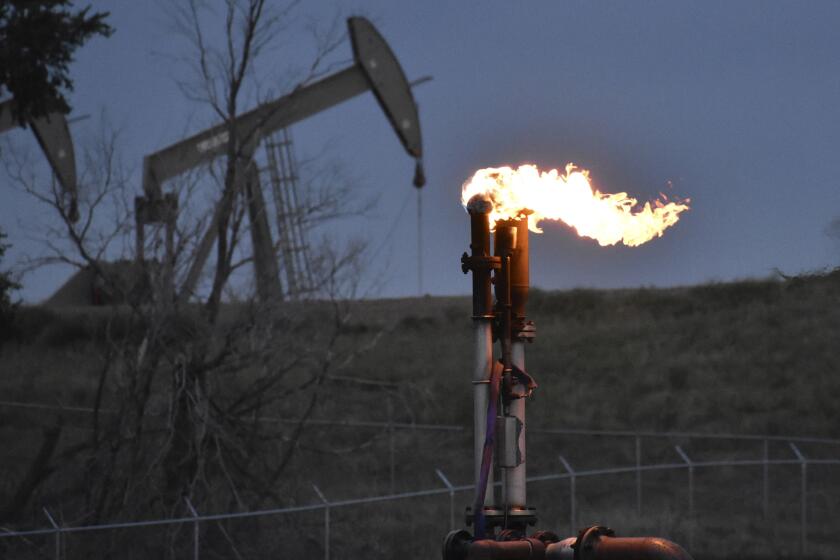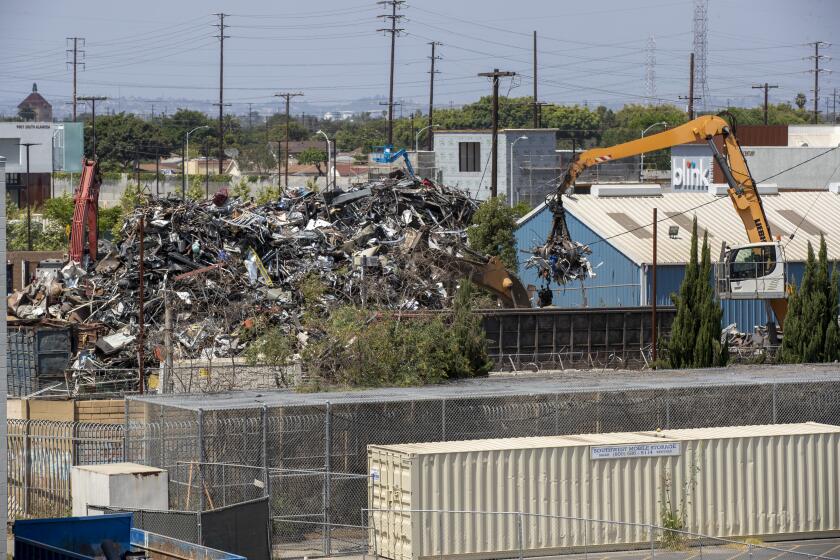Column: Are utility companies heroes or villains of the climate change saga?
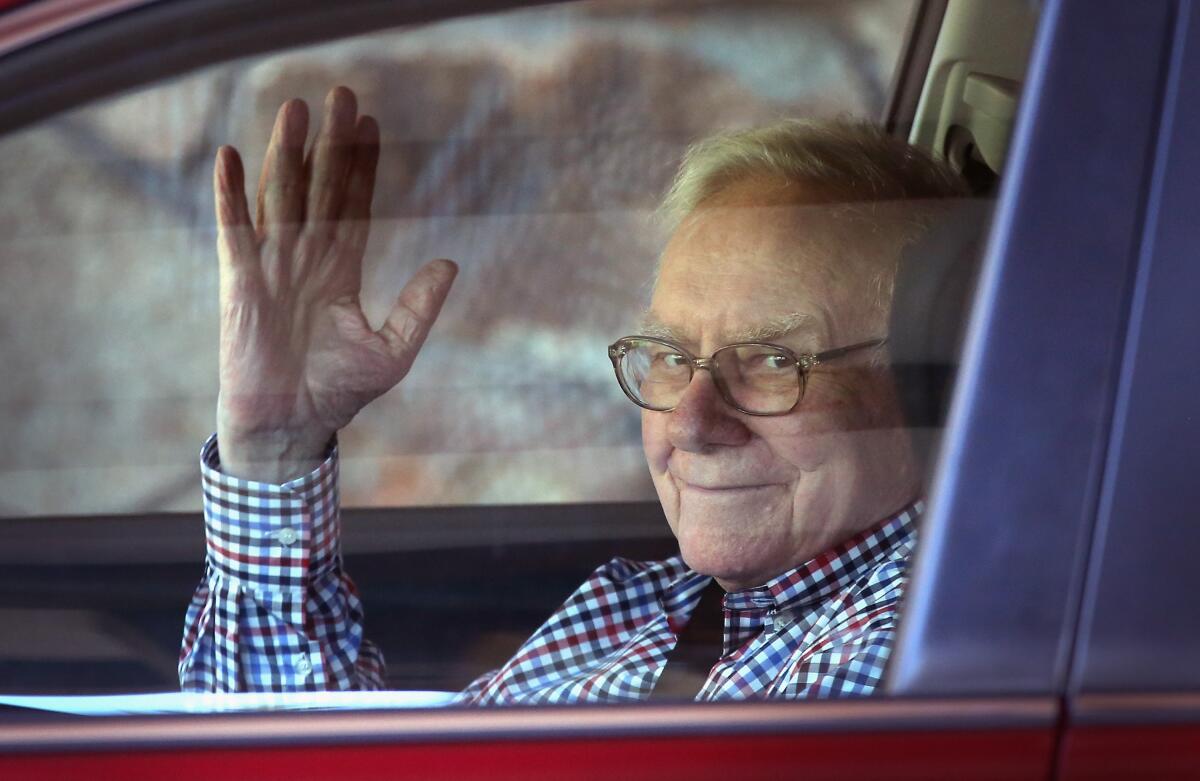
“You either die a hero or you live long enough to see yourself become the villain.”
So says Aaron Eckhart’s Harvey Dent in the epic 2008 film “The Dark Knight.” It’s an apt analysis of Batman, the film’s beleaguered superhero — and, in a strange way, of the electric utility monopolies that for decades fueled the climate crisis by burning coal and oil and gas, then began investing heavily in renewable energy, then in many cases decided they wanted to do both.
There may be no better examples of this phenomenon than the utilities led by Warren Buffett.
You're reading Boiling Point
Sammy Roth gets you up to speed on climate change, energy and the environment. Sign up to get it in your inbox twice a week.
You may occasionally receive promotional content from the Los Angeles Times.
The so-called Oracle of Omaha — so-called because journalists like me keep calling him that — is the chief executive of Berkshire Hathaway, with an estimated net worth of $136 billion. Berkshire Hathaway owns several electric utilities, including MidAmerican in the Midwest, NV Energy in Nevada, Pacific Power in the Northwest and Rocky Mountain Power in the Intermountain West.
Those utilities have built lots of solar and wind farms. They also continue to burn lots of coal.
The same goes for many publicly owned electricity agencies, including the Los Angeles Department of Water and Power. But I’m raising the climate hero/villain question for investor-owned utilities specifically because of a surprising commentary that Buffett offered last month in his annual letter to Berkshire Hathaway shareholders.
Maybe, Buffett suggested, owning utilities is no longer such a reliable way to make money.
Why would that be? Because of wildfire liability costs.
In 2019, California’s Pacific Gas & Electric filed for bankruptcy after its power lines ignited a series of destructive fires that exposed the company to tens of billions of dollars in possible damages. More recently, there’s been speculation that Hawaii’s biggest utility could be pushed into bankruptcy after its wires contributed to a blaze even deadlier than the Camp fire that was sparked by PG&E.
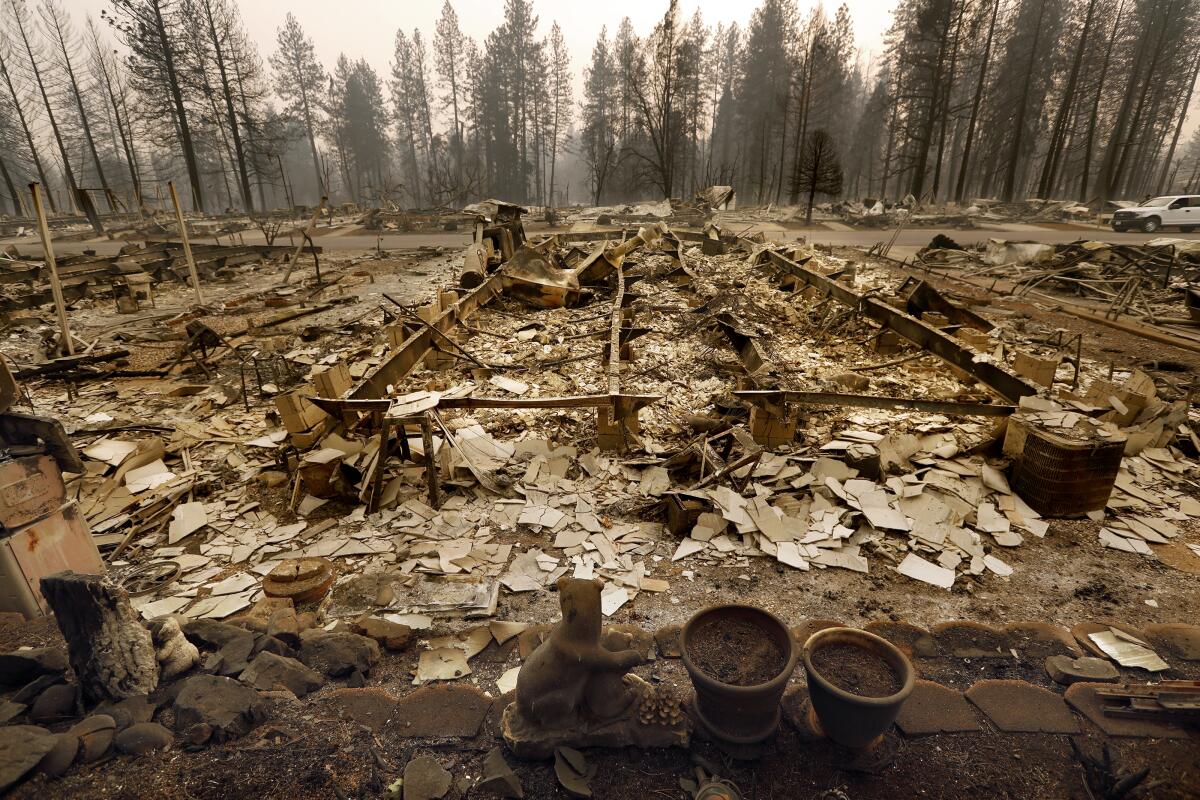
These financial swords can hang over electric companies for years: Just last week, Southern California Edison agreed to pay the federal government $80 million to cover costs from a 2017 inferno. Buffett isn’t immune: Also last week, Berkshire disclosed that federal officials are threatening to sue his company to recover nearly $1 billion in costs related to two 2020 wildfires in California and Oregon, fires from which Buffett’s empire could face additional billions in liabilities.
So maybe it’s not surprising that the Oracle of Omaha is wondering whether utilities are still reliable moneymakers — at least in the American West, where climate change is making wildfires bigger, hotter and more dangerous.
For more than 100 years, Buffett wrote to shareholders last month, “electric utilities raised huge sums to finance their growth through a state-by-state promise of a fixed return on equity (sometimes with a small bonus for superior performance).”
Basically, in exchange for the promise of no competition — a monopoly over electricity sales — companies such as Buffett’s were able to borrow lots of money on the cheap to build huge power plants and long-distance power lines, and thus keep the lights on at a relatively low cost to consumers.
It worked pretty well — if you ignored the air and water pollution on Indigenous lands, and the global warming.
Eventually Congress passed the Clean Air Act and the Clean Water Act. And eventually investor-owned utilities stopped denying climate change and started realizing how much money they could make building power lines to supply the hundreds of millions of electric vehicles, electric heat pumps and electric stoves that will be needed to replace fossil fuels.
In other words, they realized their business model could line up with the clean energy transition.
To flip around Harvey Dent’s words: “You either die a villain or live long enough to see yourself become the hero.”
Alas, that wasn’t the whole story.
The main thing that has traditionally attracted investors to utility companies is stability and certainty. And even as solar and wind power have gotten cheaper — and as political momentum and public support for renewable energy have grown — there are still no energy sources more stable or certain than fossil fuels. Society still runs (mostly) on coal, oil and gas.
So it’s no wonder that many utility companies — with investors to please and huge profits to be made — are still planning lucrative gas-plant building sprees. It’s no wonder that the industry has fought against a Biden administration climate plan that would limit emissions from coal and gas plants, probably forcing many of them to close (or not be built at all).
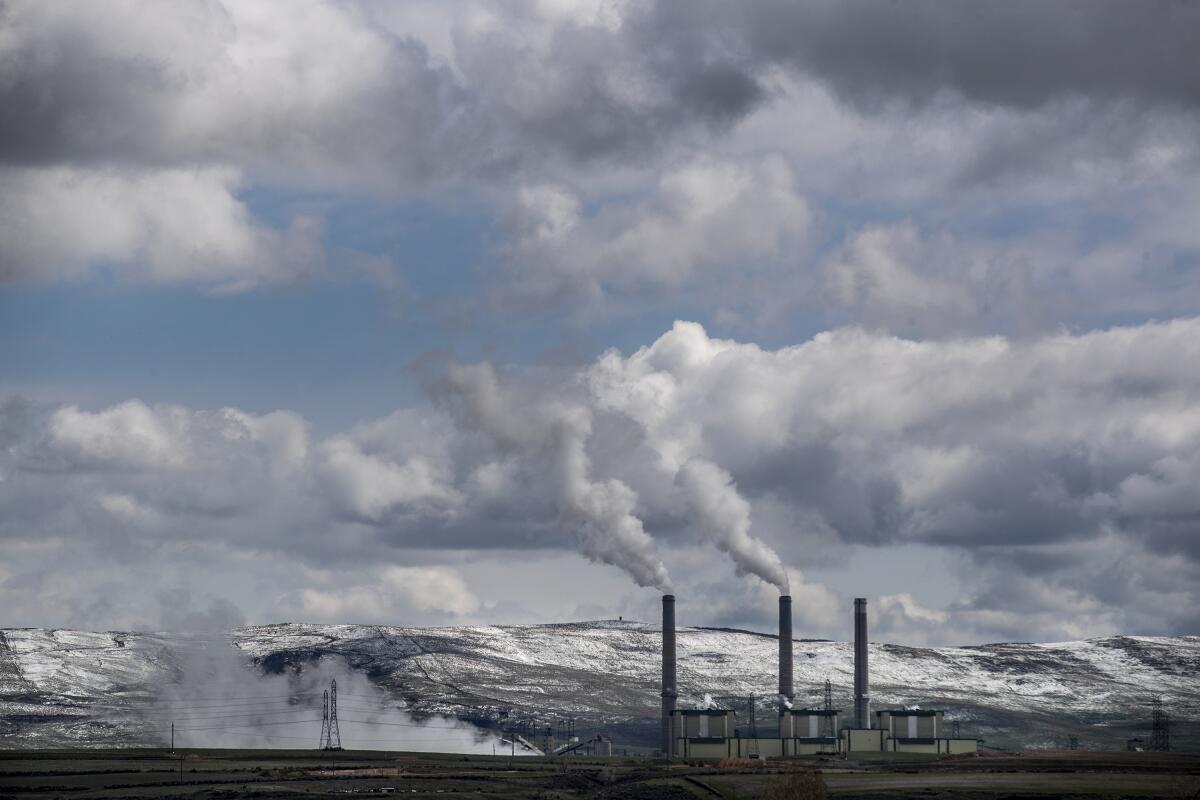
It’s also no wonder that Buffett is getting tired of paying for wildfire damages.
“It will be many years until we know the final tally from [Berkshire Hathaway Energy’s] forest-fire losses and can intelligently make decisions about the desirability of future investments in vulnerable western states,” Buffett wrote to shareholders.
Two paragraphs down, he got even gloomier.
“Whatever the case at Berkshire, the final result for the utility industry may be ominous: Certain utilities might no longer attract the savings of American citizens and will be forced to adopt the public-power model. Nebraska made this choice in the 1930s and there are many public-power operations throughout the country. Eventually, voters, taxpayers and users will decide which model they prefer,” Buffett wrote.
As utility watchdog David Pomerantz responded on X: “Warren Buffett foretelling dark storms on the horizon for electric utilities and musing rather offhandedly if maybe they’ll all just end up becoming public power entities was not on my bingo card.”
It wasn’t on my bingo card, either.
A spokesperson for Buffett declined my request to interview him for this piece. He rarely talks with the media.
There are lots of people who believe public power agencies can solve most if not all of our energy problems. In their view, if we could just take private profits out of the equation, we could transition society to cleaner, cheaper energy quickly and easily.
As you can probably tell from the way I wrote that last paragraph, I’m at least a little skeptical.
I definitely think a shift to public power could help in some ways.
For instance, it’s easy to see why there are folks campaigning to convert San Diego Gas & Electric — a subsidiary of Fortune 500 powerhouse Sempra Energy — to a city-owned entity when the company is reporting a record $936-million profit for 2023.
I especially understand that desire when other utilities — including at least one owned by Buffett — keep incurring cost overruns for the long-distance power lines that I keep telling you are so important for fighting climate change, and that anti-utility activists keep telling me we wouldn’t need in such larger quantities if only we built more rooftop solar.

Speaking of rooftop solar, the California Public Utilities Commission appears poised to deal yet another blow to any solar project that doesn’t plug into the larger utility-controlled transmission grid, and thus contribute to utility profits.
Already, Gov. Gavin Newsom’s appointees to the commission have, at the urging of utility companies Sempra, Edison and PG&E, slashed incentive payments for rooftop solar systems. And now, the agency may hand the utility companies a win in the realm of “community solar” — small local projects that allow apartment renters who can’t install their own panels, or might not be able to afford them, to buy some of the energy generated at an off-site facility.
Earlier this week, commission staff recommended that Newsom’s appointees adopt a community solar program extremely similar to one proposed by Edison. It’s a program that solar installers and other supporters — including consumer watchdog groups that have previously clashed with those installers — insist would be a total nonstarter for community solar.
The staff recommendation “entirely misses the mark, repeating the pattern of over a decade of failed efforts at creating a successful community solar-plus-storage program,” Brandon Smithwood, senior director of policy at community solar developer Dimension Renewable Energy, said in an emailed statement.
“The commission is leaving on the table much needed clean energy to support reliability, forgoes opportunities to support bill savings, and keeps our most marginalized communities choking on polluted air in the dark,” Smithwood said.
When I talked last year with Southern California Edison’s senior vice president of corporate affairs and public policy, Caroline Choi, she told me the company supports community solar and wants to see clean energy get built in disadvantaged neighborhoods. But the community solar plan pitched by solar developers, she said, would unfairly raise electricity rates for all Edison customers, without offering sufficient bill savings for those participating in the program — hence Edison’s competing proposal.
“The developer shouldn’t get so much of the reward,” she said.
Newsom’s appointees could vote on the Edison-supported program as soon as April 18.
To critics, this is Exhibit A of why utilities will never be climate heroes. To quote another recent social media post from David Pomerantz, executive director of the Energy and Policy Institute, a utility industry watchdog group: “Utilities support clean energy *only insofar as they can own & profit from it.* Under all other scenarios, they oppose it.”
True? False? I’ll leave that for you to judge.
But profits underlie all utility decisions. That’s true for Edison, and it’s true for Berkshire.
In his shareholder letter, Buffett lavishes praise on Occidental Petroleum, of which Berkshire owns a whopping 27.8%.
“Under Vicki Hollub’s leadership, Occidental is doing the right things for both its country and its owners. No one knows what oil prices will do over the next month, year, or decade. But Vicki does know how to separate oil from rock, and that’s an uncommon talent, valuable to her shareholders and to her country,” Buffett writes.
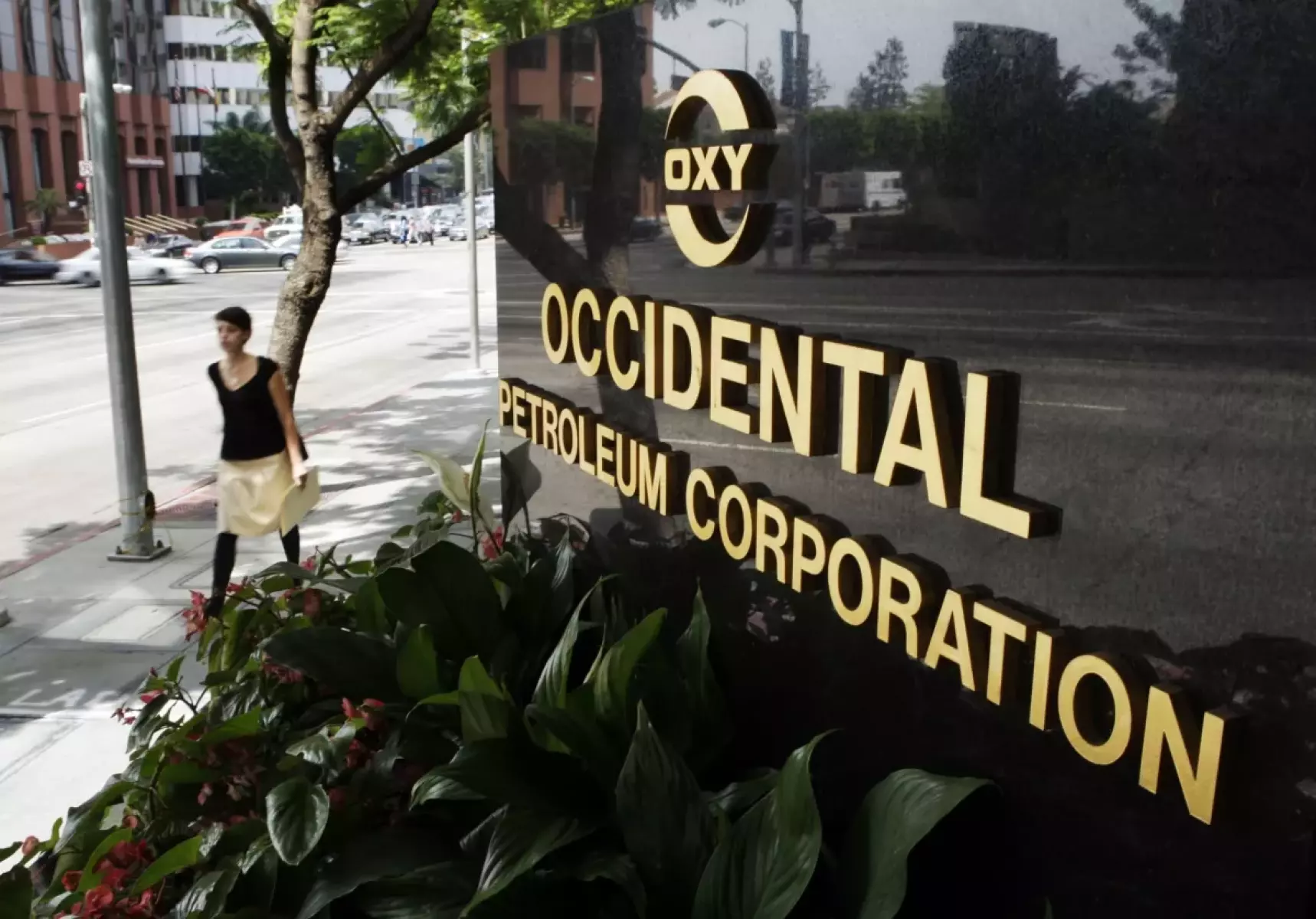
So if you’re looking for a climate champion in the utility space, Buffett probably isn’t your guy.
At least Berkshire has steered clear of the financial scandals that have ensnared other investor-owned utilities.
“Utility fraud and corruption — in Florida, Illinois, Mississippi, Ohio, and South Carolina — have cost electricity customers at least $6.6 billion,” Mario Alejandro Ariza and Kristi E. Swartz wrote this month for nonprofit news outlet Floodlight. “Ratepayers have bankrolled nuclear plants that never got built, transmission systems that were over-engineered to beef up profits, and aging coal facilities that couldn’t compete with cheaper plants powered by methane, which the industry calls natural gas.”
Sounds villainous. That said, public power agencies aren’t immune to fraud or corruption, as I am sadly aware.
During my previous journalism job at the Desert Sun, my investigation of Southern California’s Imperial Irrigation District resulted in the cancellation of a $75-million solar contract and a $7-million battery deal. Here in Los Angeles, The Times has shined a bright light on a corruption scandal that landed the L.A. Department of Water and Power’s former general manager in prison.
Maybe there are no heroes or villains. Maybe we all just do our best, and we live, and we die, then we move on. The end.
Let’s hope we can keep temperatures from rising too high in the interim.
I’m sure I’ll get emails from readers frustrated with me for not understanding that for-profit utilities are the root of the climate crisis, and that the key to saving the world is getting rid of them. I’m sure I’ll also hear from readers — probably not quite as many — who wish I would spend less time critiquing capitalism and more time writing about other ways to confront the intractable knot that is global warming, such as actions we can take in our daily lives, or bills we can support in Congress.
I’m sure I’ll be sympathetic to both of those perspectives.
But it matters less where my sympathies lie than where Buffett thinks his money should be parked. If he concludes that poles and wires are no longer a good investment in the West, then public power advocates may be in for a treat. The story continues.
ONE MORE THING

I’ve spent a bunch of time writing about Measure HLA, a ballot initiative that would require Los Angeles to add hundreds of miles of bike lanes and bus lanes, to make the infamously car-centric city more friendly to other modes of getting around.
In the election that came to a close Tuesday, L.A. voters approved the initiative, my colleague Rachel Uranga reports.
Ballots were still being counted Wednesday. But early returns showed an overwhelming victory for Measure HLA.
“This says people in Los Angeles want change, they want safer streets and they want the city to follow through on their promises,” said Michael Schneider, executive director of advocacy group Streets for All, which conceived the ballot measure.
Change is possible. Let’s never lose sight of that fundamental reality.
This column is the latest edition of Boiling Point, an email newsletter about climate change and the environment in California and the American West. You can sign up for Boiling Point here. And for more climate and environment news, follow @Sammy_Roth on X.
Toward a more sustainable California
Get Boiling Point, our newsletter exploring climate change, energy and the environment, and become part of the conversation — and the solution.
You may occasionally receive promotional content from the Los Angeles Times.

